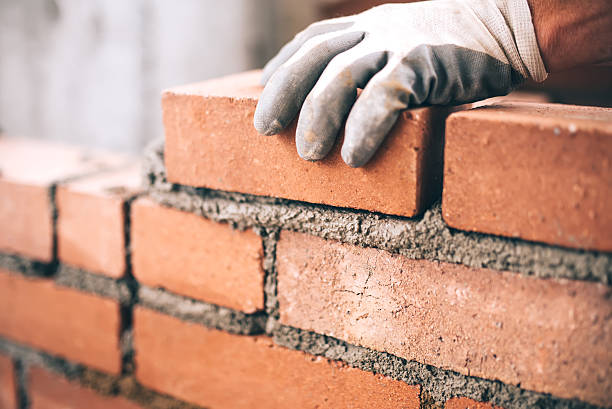Trustworthy Chimney Services: Upkeep and Fix Done Right
Trustworthy Chimney Services: Upkeep and Fix Done Right
Blog Article
Unlocking the Keys of Sustainable Stonework Building Practices for Eco-Friendly Buildings
Amongst the myriad methods to environmentally friendly structure, lasting masonry building stands out as a reliable and sturdy approach that holds a wealth of untapped potential. From the selection of materials to ingenious building and construction strategies, the keys to accomplishing sustainability within stonework building and construction are diverse and appealing.
Advantages of Lasting Stonework Construction
Accepting sustainable stonework construction practices not only minimizes environmental impact yet additionally offers long-lasting economic advantages to home builders and communities. By utilizing products like recycled blocks, blocks, and stones, home builders can considerably reduce the carbon impact of their tasks while advertising source efficiency. Additionally, lasting masonry building and construction methods, such as appropriate insulation and thermal mass buildings, can enhance power effectiveness within structures, resulting in decreased functional prices gradually.
Additionally, the durability and resilience of masonry frameworks add to long-lasting economic advantages. Buildings built using sustainable masonry methods typically require less repair and maintenance, equating to set you back financial savings for building contractors and homeowner. The long life of masonry products additionally ensures that structures remain secure and safe and secure, decreasing the need for constant improvements or substitutes.
Eco-Friendly Masonry Products
Using eco-friendly masonry materials is a critical step in the direction of boosting the sustainability of building practices and lessening environmental influence while making best use of lasting economic benefits. Sustainable masonry products are sourced, generated, and used in a way that reduces total ecological influence. Sustainable concrete blocks incorporate recycled accumulations and might include enhanced insulation residential or commercial properties, contributing to power efficiency in buildings.
Additionally, all-natural products like adobe, rammed earth, and straw bales supply superb thermal mass homes, lowering the need for home heating and cooling energy. These materials are typically locally available, promoting local economic climates and decreasing transportation-related carbon emissions. By picking eco-friendly stonework materials, construction tasks can dramatically reduce their ecological footprint and add to the creation of much healthier, much more sustainable developed environments.
Energy-Efficient Stonework Methods
Energy efficiency plays a vital duty in enhancing the sustainability of masonry construction methods. One crucial energy-efficient stonework technique is the use of thermal mass, which includes including thick materials like concrete or brick right into the building's framework to absorb and store warmth.

Developments in Sustainable Masonry
Current advancements in lasting stonework methods have caused innovative methods that are reshaping the building industry. One such advancement is the growth of self-healing concrete, which uses bacteria installed within the concrete to recover fractures autonomously. This development not just my review here decreases upkeep expenses but additionally boosts the longevity of stonework frameworks, contributing to their sustainability.
One more significant development is making use of recycled aggregates in stonework building and construction - masonry contractor. By including products such as smashed ceramic waste or recycled glass right into concrete mixes, contractors can decrease the environmental effect of building tasks while maintaining structural honesty. This practice not only diverts waste from land fills but also saves natural deposits, making it a crucial development in sustainable masonry building and construction
Additionally, the assimilation of digital design devices, such as Structure Information Modeling (BIM), is reinventing the lightweight aggregate method stonework frameworks are intended and created. BIM permits more specific computations, decreased material wastefulness, and improved energy efficiency, eventually bring about more lasting building practices. These innovations jointly indicate an appealing future for sustainable masonry construction in the period of environmentally friendly buildings.
Future Trends in Stonework Sustainability
With the ingenious strides made in sustainable stonework techniques, the future trends in stonework sustainability are poised to more reinvent the construction market. Among the essential patterns shaping the future of masonry sustainability is the raised integration of innovation. Developments such as Building Details Modeling (BIM) and digital truth simulations are being made use of to optimize stonework building and construction processes, causing decreased material waste and improved energy effectiveness in structures.
In addition, the development of novel lasting materials is readied to play a significant function in boosting the eco-friendliness of stonework construction. masonry contractor. Advancements like self-healing concrete, recycled accumulations, and bio-based binders are getting grip for their capability to lessen environmental impact while maintaining architectural stability

Conclusion
To conclude, lasting masonry building techniques provide various benefits for eco-friendly structures. By making use of environmentally friendly products and energy-efficient techniques, masonry can add to a much more lasting constructed setting. Developments in lasting stonework are constantly being established to additionally boost the ecological efficiency of buildings. Looking towards the future, the fad of masonry sustainability is anticipated to grow, causing even more ecologically friendly and energy-efficient building and construction practices in the years to find.
Report this page